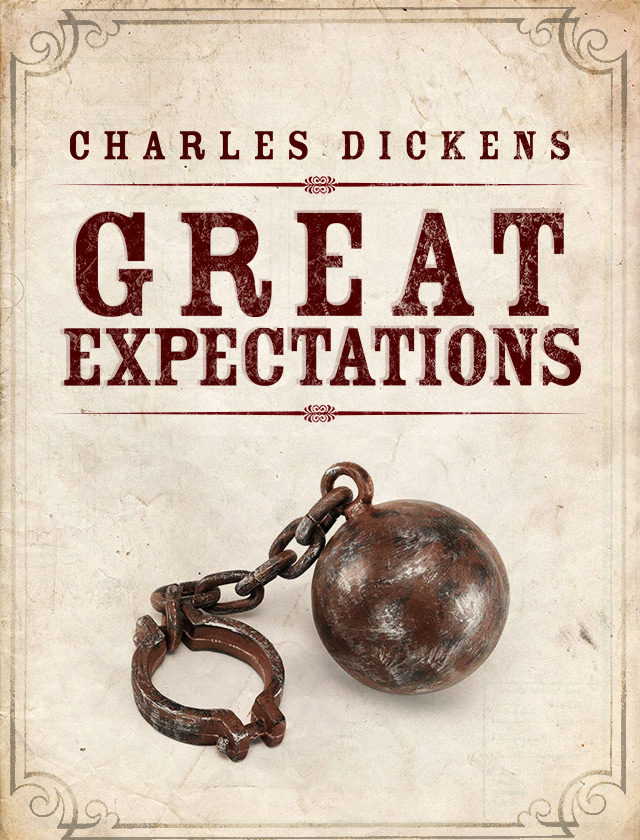Great Expectations
by Charles Dickens
Introduction and Background
Charles Dickens was born Charles John Huffam Dickens on February 7, 1812. One of the Victorian era’s most well known authors, Dickens was also a popular critic. Unlike many writers, Dickens enjoyed great fame and success during his lifetime. Although today most of Dickens’ work arrives to readers through the novel format, most of his work was first serialized. Therefore, readers would receive the story in monthly or weekly installments in journals; later, the text would be put into the traditional novel format that we are familiar with today. The episodic nature of the stories allowed for Dickens to shape the novel around the reader response to the episodic story; if readers had suggestions for characters or storylines, Dickens would sometimes tweak his writing to suit the needs of his readers.
Although not published in his lifetime, there is an alternate ending to Great Expectations. It was not originally published because Dickens feared that his readers would riot if Pip and Estella did not reconcile their love for one another at the end of the novel. The unpublished ending presents a bleaker picture of Pip and Estella. Instead of believing that he will not part from her, Pip describes how Estella married a Shropshire doctor after a horse killed Drummle. As Pip walks along Piccadilly with little Pip—Joe and Biddy’s child—a lady in a carriage approaches him and asks to see the child. The lady in the carriage is, of course, Estella, but she has changed. Her beauty has diminished. She believes the child to be Pip’s, and he does nothing to dissuade her belief. Instead of feeling love for Estella, Pip feels that justice has been done. He senses that Estella finally understands what he has been through. This ending was not published until 1999. In addition to shifting the resolution in the story, the alternate ending shows that indeed, novel writing is always a process that produces many conflicting ideas. However, the job of the writer is to make choices. In this case, Dickens chose the ending that he felt would give his readers the...
Sign up to continue reading Introduction and Background >